I’ve just returned home to Portugal after 15 days in the States. Filha, Marido, and I traveled to Illinois to spend time with my mom and dad and give my sister and her family a break from parent-watching. These trips are never really a vacation, and I look forward to and loathe them in equal measure.
There are the small delights of soft-serve ice cream and fresh sweet corn and Jimmy Dean breakfast sausage and big red barns and green, green, green every which way you look. I am always glad to see my sister and her family. It is always good to be with my dad, even if he wears his age more heavily with every visit.
My mom is a different story, one I’ve written about before. Alzheimer’s has been hard at work mining holes in her memory for nearly a decade now. More than a year has passed since she lost track of who my sister and I are. So visiting my mother now is like watching an alien animate a body that once belonged to someone beloved. It’s by turns devastating and bizarre. Each time I see her she is further away.
But it’s not just my fading parents that are hard to see. It’s also just the America of it all. The tangled threads of love and rage and duty and despair. As I texted one of my friends from the middle of the Midwest when she asked how it was going: “It’s… a lot.”
So today instead of one big story about an Illinois July, I have five smallish ones for you. Postcards, if you will…
1 / Losing the Thread
My mom thinks she and I were girlhood friends. She thinks we grew up together overseas. She thinks we used to play on a swing set like the one in my sister’s backyard. We watch out the window as Filha and a friend twist the chains of their swings and spin out, legs flying.
“Remember when you and I would do that?” my mother says.
I make a noise that could be construed as assent: “Mmmmmmm.” I cannot remember a thing that never happened.
My mother taps the window with one long, hot-pink nail. She looks up at me and smiles. I smile back, vaguely, without meeting her eyes. There’s a stain on her pants and a hole in the back of her flower-spangled t-shirt. We’re at the dementia stage where she can’t be bothered to change her clothes, comb her hair, take a shower. She refuses all help or suggestions. (My mother was never docile.) Every Tuesday my sister has to force her into the shower, firmly as you would a toddler, while Mom glares and mutters, “Bullshit! Bullshit! Bullshit!” just under her breath.
These are the ties that bind us now. Hopelessly tangled threads, frayed nigh unto breaking. There’s no way to make sense of this disease. You just have to hold the mess in your hands, gently. You have to resist the urge to undo the knots.
Never in my life has my mother had hot pink nails. As a nurse, her nails were meticulously pruned and unvarnished. Later, before we lost her, she and I would go to the nail salon together when she came to California. I’d choose a dark color—pewter or black. She’d pick pink, soft like the inside of a shell. “Natural,” she’d tell the manicurist. “I want them to look natural.”
All the t-shirts hanging in her closet are blue because it was always her favorite color. But if her nails are hot pink now, who knows what colors she loves? At Farm & Fleet I choose three new shirts for her, soft and bright—pink, green, purple.
At my sister’s house, my mother tells me she never had any kids. She delivers the line casually. Off-the-cuff. She has no idea the way this severed thread pierces me to the quick, hot and sharp like it’s threaded through a needle.
“But I love children,” she amends. “I’d like to have kids, as many as God gives me.” She’s 82 years old. I have trouble responding.
She reaches out and pats my hand like I’m a patient or a stranger. ““I’m so glad you’re here,” she says sweetly. “It’s so special that you came to visit me.”
2 / A Sudden Rupture
I am sitting at a thrifted clawfoot table in an unassuming Airbnb in Woosung Illinois. I grew up three miles from here, but the only impression I have of Woosung is that it rhymes with the last name of my childhood friend Anna Hussung.
Woosung is a bump in the road, a wide spot, not even a town—though it does boast a post office. Never a place I thought I’d lay my head, but my sister and fam came home from Yellowstone carrying COVID in their RV, so Marido, Filha, and I needed a plague-free place to park ourselves until the negative tests rolled in.
I’ve just woken up and am trying to add the license plate of our rental Chevrolet to the pay-by-plate roster on illinoistollways.com when a green iMessage alert rattles my phone. My best friend S is texting from the UK: “Please call me! J died! Please call.”
My heart stops for a second because J is her husband. I am swearing and dialing before the thought has fully settled into my brain. Her face pops up on the screen, stunned and exhausted. I am too shocked to cry. She is just beginning to shatter.
J’s death was sudden in the way that you know in your bones that someday everyone you love will die but not today, certainly not today. He had just woken up, had said he was coming down for breakfast. But he never came down, and when S went upstairs to see why, she found him on the landing. Already gone.
A week will pass before she learns the cause—or the cavalcade of causes, all centered in J’s overlarge (literally and figuratively) heart: cardiac tamponade, hemopericardium, ruptured aortic dissection. His one-in-a-million heart, the heart that loved my best friend hard and well, is irreparably broken. Nothing anyone could have done about it.
On that Thursday morning, though, we have no idea what felled him. All we know is he is gone, and that knowledge is all the more unbearable because his death was absolutely unexpected. All we can do is sit there—4,033 miles apart—and stare at each other.
“Fuck,” I swear, lamely.
“Yeah,” she says. “Exactly.”
Two hours later I am sitting on the splintery bleachers in the show barn at the Lee County 4-H Fair, watching my 10-year-old niece parade her spotted goat before a livestock judge. (The goat’s name is Mozzarella.) Half of me sits here, cheering her on while she wins third place in the Dry Yearling Doe class. The other half is grieving with S across the Atlantic and begging a “Why?!” that will never be answered.
The brutality of life and the sweetness, all at once in the very same instant.
3 / Head, Heart, Hands, Health
There are 140 goats at the Lee County 4-H Fair this year, a record number. Half, at least, are “meat goats,” as opposed to “dairy goats”—a distinction that didn’t exist way back when I wore a competitor number at this very fairground. Back then they were all just goats, and there were only about 30 of them.
Growing up, we always spent the last weekend in July at the 4-H fair, Thursday to Sunday. My dad would take time off—three vacation days, though he probably needed twice as many days to recover. The Wednesday of fair week is a whirlwind because that’s the day you have to deliver your animals to the fairgrounds. For us, that meant goats and horses—though there was at least one year in there where my sister also took a chicken along. This year, my nieces are taking two goats—Mozzarella and Carmelita—plus one photograph of a cat named Willie, and one heart-shaped piece of stained glass.
If you didn’t grow up in the rural acreage of the USA, you may have never heard of 4-H. It’s a youth club, basically, that focuses on teaching leadership skills through animal husbandry, agriculture, civic engagement, and the like. 4-H’ers take on a year-long project (or multiple projects) that can be anything from raising a goat to teaching a dog how to heel, to sewing a garment or baking a pie or taking photographs or improving one’s horsemanship.
4-H kids belong to a local club (my sister and I were members of the “Palmyra Pixies & Patriots”) and attend a monthly meeting that they run by themselves. (I was president of our 4-H club at least once during my 10-year-tenure, but my favorite role was secretary because I liked checking off roll call names and taking notes.)
Like many things Americana, the 4-H Club has an emblem—the four-leaf clover—and a pledge of allegiance, every word of which I remember since I was a club member from age 8 to 18:
I pledge my head to clearer thinking, my heart to greater loyalty, my hands to larger service, and my health to better living for my club, my community, my country, and my world.
The 4-H fair is the culmination of your annual projects. You take your quilt or your stalk of corn or your sheep, pig, or cow to your county 4-H fair and try your best to win a blue ribbon. As kids, the Lee County 4-H Fair was a delight of ferris wheels and cotton candy and barrel races and trophies for my sister and I. We’d hang out in the horse barn, trying to maintain a cool facade while perched on tack boxes outside our horse’s stalls as fairgoers strolled by and commented on how cute or pretty (or terrifying, in the case of my psychotic quarter horse*) our horses looked.
Over the years we’ve popped by the fairgrounds once or twice for an hour or three, but until this summer neither my sister or I had signed up for the whole enchilada—three-and-a-half full days of livestock shows and tractor pulls and volunteer shifts at the 4-H Federation Food Stand. When we planned this trip four or five months ago, we both thought it would be great idea to end my family’s visit to the States with a marathon fair experience. “What fun!” we said to each other, “What memories!” I even gave an enthusiastic consent when my sister asked if I wanted to work a late-night shift with her at the aforementioned food stand.
But midway through the chaotic experience of shampooing a highly displeased goat on the Wednesday afternoon of Fair Week, we both realized that we may have made a grave miscalculation.
Our memories of this quaint summer tradition are at least 35 years old. They are hazy and yellow like an old Kodak print. Warped around the edges and filtered through the lens of childhood. Back then we wondered why our dad was always so tired at the fair, why he took naps on hay bales in the goat barn with his cap atop his face. “How could a person be tired at the fair!?” we wondered. For us it was the highlight of every summer, a grand and thrilling adventure.
What we forgot is that we’re not kids anymore. What we forgot is that we’re the adults. The ones who keep everyone on schedule and pack the feedbags and pine shavings and buy the goat shampoo. We’re the ones fighting off back aches and bunions and a hot flash or three. And it’s not just kids and goats we’re wrangling… we’ve also got to keep eyes on our parents because our dad decided it would be a really great idea to bring an advanced Alzheimer’s patient to a rodeo at the county fair on a Saturday night in July, and if she gets tired of the noise or yells at someone else’s children or poops her pants on the way to the public restroom, well, we are the crisis managers for those things, too.
What we forgot is that it’s not fun and games anymore. Not for us.
That’s not to say we didn’t make some solid gold memories during those four blistering days. Both of my nieces took home blue ribbons. Filha had a fantastic time running wild with her three cousins. Tractors were ridden. Goats were wrangled. Cotton candy was consumed. History was made. There were moments when my sister and I laughed together harder than either of us have laughed in a long, long time.
Last Saturday night I flipped pink frozen beef patties onto the grill outside the Federation Food Stand while my sister rushed to fill dinner orders inside. I tried not to freak out about the fact that I’m a terrible cook who avoids grilling surfaces at all costs and just, you know, grin and fake it ‘til I made it. As the evening crowd surged around me and Filha and Marido stopped by to goggle and giggle at my decidedly sub-par burger handling skills, I pledged my head to clearer thinking and my hands to larger service and just got on with it.
Burgers aren’t that hard to cook, after all. And somewhere down deep, I’m still a 4-Her, prone to fits of philanthropic volunteerism. I’m also a Midwesterner, and we’ve got that can-do, work-hard ethic drilled into our bones.
So told myself that someday this would be a very funny memory indeed and I grilled and I flipped and I filled all those waiting buns with mildly overcooked burgers and everything was absolutely fine.
4 / The Business with the Monkey
There is a stuffed monkey in the back seat of my sister’s car. Mom sees it when I pick her up for her 3:30pm doctor’s appointment. She’s getting stitches removed. The monkey has no tail but wears a wary smile. Mom is enchanted. “Oooh, aren’t you cute!” she coos, and settles the toy on her lap as I buckle her in to her seat.
The monkey moves from Mom’s lap to the dashboard during the drive to the medical clinic. She holds him there with one age-spotted hand, neat gel manicure incongruous with the riot of whiskers bristling from her chin. “Look at the clouds!” she tells the monkey. “Do you know what’s in the clouds? Heaven!”
She pulls the monkey back onto her lap, pets its nubbly brown head, murmurs to it as if it’s her own flesh and blood. “When you get a bit older I’ll tell you all about heaven.”
The wheels of Mom’s walker rattle against the pavement as we trek our way slowly through the parking lot. “Are we picking up The Man after this?” she asks. The Man is my father. Sometimes she remembers that his name is Dave.
“No,” I tell her for the 15th time. My voice remains unchanged. In the early years of her dementia, my answers would get shorter with each repetition. Clipped threads of conversation. I’ve gotten better with practice. Now I repeat my lines like a seasoned actor, same inflection in all the right places. “Dave is already at home. We’re going to pick up some ice cream for him.”
“That’s good, that’s good,” she nods as if satisfied, as if she won’t ask again when the loop resets. “Keep it quiet!”
She always has a catch phrase, this Black Mirror version of my mother. Last year it was “pedal to the metal.” This year it’s “keep it quiet.” She drops the clause into her monologues in the most disquieting of places.
In the antiseptic waiting room a TV blares above our loudly upholstered chairs. “I was born with wings, but psoriasis clipped them,” a woman recites. The ad promises a miracle cure which has caused “some patients to experience clear skin after just one application!” Side effects may include suicidal thoughts and actions. They don’t tell you how much it costs.
We’re here for a mole. A couple of weeks ago the dermatologist cut a suspicious-looking swathe of skin from my mother’s face. She never did wear sunscreen. The biopsy was benign, so an incision and three black stitches are all that’s left of our worries.
The nurse clips the threads of the sutures tucked beneath the lobe of my mother’s left ear. Mom hisses a wince as the nurse tugs the tip of one stitch ungently with her tweezers. “Ope!” chirps the nurse. “Did I pinch ya?” My mother doesn’t answer and the nurse is already done.
The treatment room is maybe 100 yards from the parking lot. On the way there I tell my mother we are going to get ice cream for my dad at least three times.
The monkey sits in the front seat as I unlock the car, and Mom greets it like a long-lost child. She cuddles it in her arms on the way to Dairy Queen. “We’re getting ice cream for my husband,” she confides. “Someday you’ll know all about how…” she pauses, loses the thread, picks it back up, “…about how to have a husband to keep you safe. Your husband will keep you quiet, he’ll keep you safe inside the house.”
I side-eye my mother and the monkey as I coast to a stop at the drive-up menu board. Because that wasn’t creepy or anything. I place my order for a baby vanilla cone and a box of Buster Bars as Mom waggles the monkey’s legs from side to side and murmurs, “Gotta keep it quiet! You’re doing a good job. Keep it quiet. Keep it quiet!”
When we get back to the farmhouse, she’s in a hurry to get inside. I unfold her walker, hold the front door open, put the ice cream in the freezer, call my dad out in the barn to make dinner plans. It’s only 10 minutes before I’m strapping on my seatbelt again.
The monkey lies on his face in the passenger seat. He keeps it quiet as we make our escape.
5 / ‘Merica ‘Mingos
The most shocking thing about returning to America once you’ve moved away is not the fact that everything is Big! and Fast! and Loud! and Now! It’s that everything is so very, very American. On top of being big and fast and loud and now.
“I’ve seen more flags in one week here,” Filha said, “than I have ever seen in Portugal in THREE YEARS. And Portugal doesn’t have flags the size of a barn!”
That observation came before we attended the rodeo at a small county fair. “This ain’t Texas,” Beyoncé reassured me as I sat in the bleachers amid a sea of cowboy hats, cut-off jean shorts, and American flag t-shirts of ingenious variety. She was right. It was northern Illinois. Still, without even turning my head I could count no less than six XL stars and stripes staged at various places around the arena.
Then the announcer—an older white gentleman in a ten-gallon hat—turned Queen Bey down to hype the crowd up for the opening act of mutton busting—which is when little kids as young as three try to stay on the back of a passionately confused and overly woolly sheep.
“We sure do have a good time planned for you this evening,” the announcer promised, “but before we get started, I want us all to get down on our knees so we can be thankin’ our Good Lord who allows us to come out here.”
I was just starting to wonder how, exactly, one gets down on their knees while sitting on some very old-fashioned wooden bleachers—and also, what in the heck does Jesus have to do with bronc riding—when a hush fell over the crowd. At the far end of the arena, a young woman in a shimmering blue sequined shirt rode through the gate bearing Stars & Stripes bigger than her horse. Like a wave, folks heaved themselves upright, sweeping hats from heads and settling hands over hearts.
I muttered a disbelieving “Jesus Christ!” before I realized that was probably a wildly inappropriate thing to say at the moment—and then I had to bite down hard on a hysterical giggle that almost unseated me.
Sure enough, Miss Small Town America rode solemnly around the ring, her star-spangled chaps glistening in the failing daylight, as the announcer intoned a prayer that was part patriotic screed and part delirious mumblings about “freedom” and “western heritage” and “rural way of life.”
Filha jiggled my elbow, wanting to know, “Are they serious right now?”
Oh yes, child. More serious than you can imagine. Five minutes from now, the rodeo clown will be making jokes about erections to a crowd that’s 70% children, but while heads are bowed and eyes are closed, American Jesus takes the wheel.
“And this is only one of the reasons why I wanted to get you out,” I think to myself as I scan my dutiful, deferential, all-white neighbors. Not a one is flinching at the extreme weirdness of this God-n-Country display.
A few days prior, Filha and I perused the goods in a hardware store. We turned a corner and were struck dumb by a large display of red-white-and-blue yard flamingos, just $45.99 for a set of three. “MERICA MINGOS!” the packaging blazed, “MAKE YOUR YARD GREAT AGAIN!”
Serious as a heart break.
For so many small-town American folks, this is real life. This is the bubble they inhabit, one that far too many will never see the outside of.
I was one of them, once upon a time. As a child, I too would have slapped my hand to heart unthinking. Of course Jesus belongs at the rodeo. Of course God loves America the most.
I’ve come a long way since then, so far that now the neighbors who once were mine feel like the most foreign of strangers. And yet…
As we stepped through the gate to the rodeo that night, my 81-year-old memory-bereft mother pushing her wheeled walker through the dirt, a tall grizzled man in a MAGA hat bent kindly toward her. “You’re gonna want to watch this bump here, ma’am,” he said, pointing at a ridge of hardened clay in her path. “It almost tipped me on my ass and I sure don’t want to see you gettin’ hurt!”
“Okay,” my mom murmured as she shuffled on her way. I paused to meet the stranger’s eyes and nod in appreciation.
“Thank you,” I said.
“No problem at all,” he replied. “No problem at all.”
If you want to support my work…
You can choose from a couple of tiers of paid subscriptions. In addition to my undying gratitude for your support, you’ll get more of my writing, which is what (I assume) you’re here for! Once a month for paid subscribers only, I will post an excerpt from my memoir-in-progress. The first one is here, for free, if you want a preview.
OR
If you’re not into paid subscriptions, but you’d still like to show support every once in a while, you can leave me a tip via Venmo or Tipeee.
OR
If you want to carry on reading these posts for free because you can’t or shan’t pay, that’s perfectly fine. I do not hide Long Scrawl essays behind a paywall.
NO MATTER WHAT: Thank you for reading. Thank you for telling me when my writing means something to you. That matters most of all.
Sometimes You Gotta See It To Believe It…
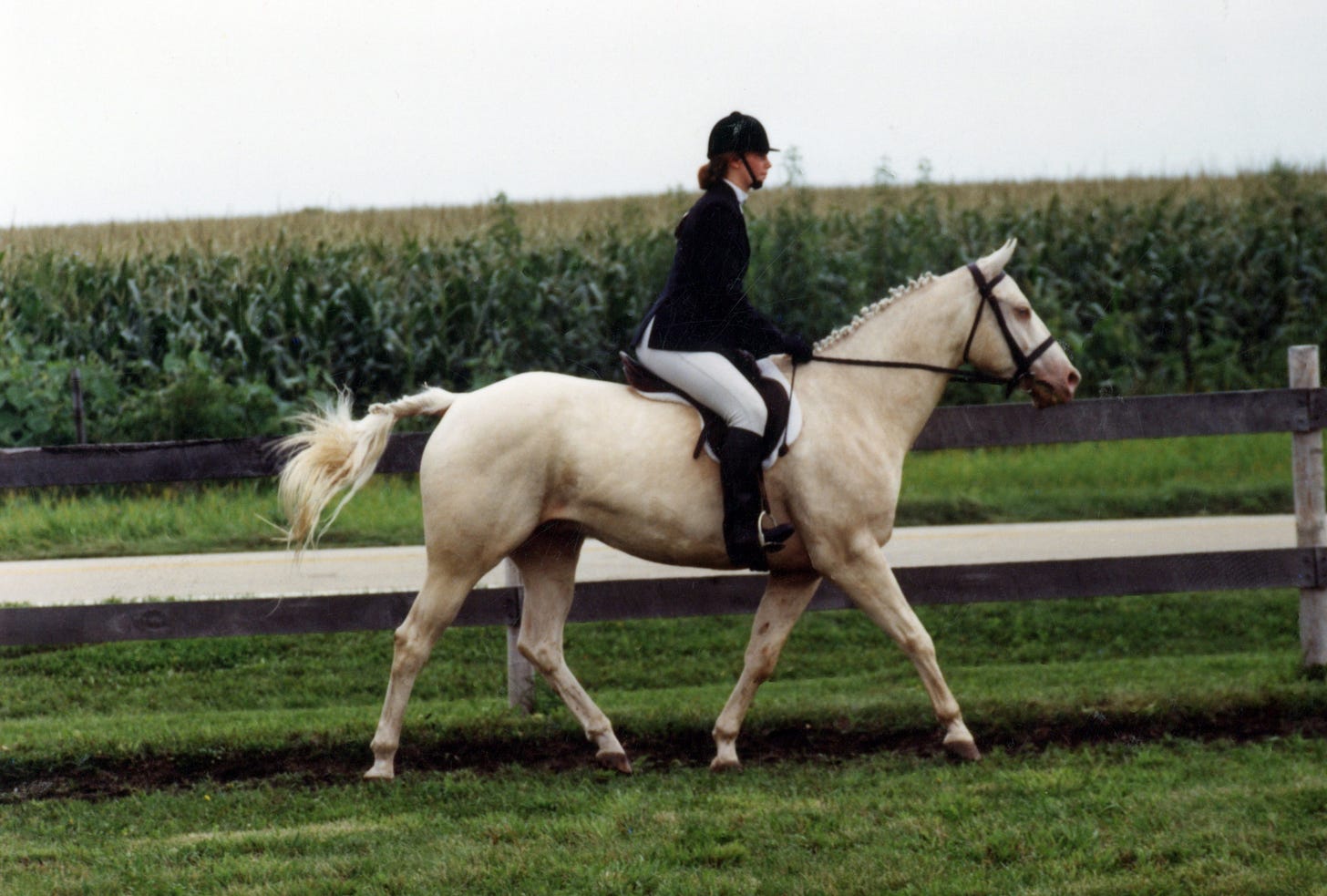

Copyright © 2024 LaDonna Witmer





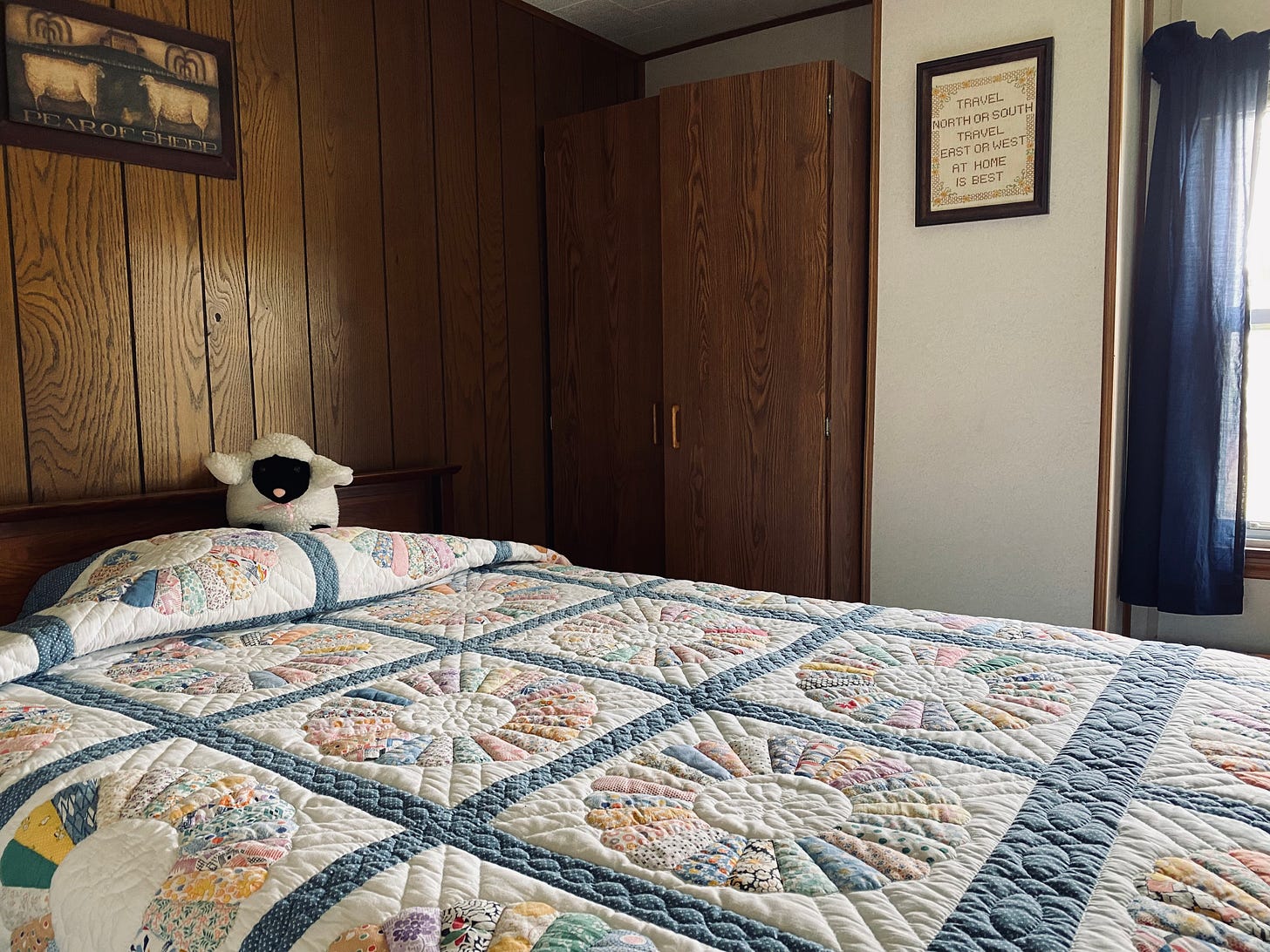
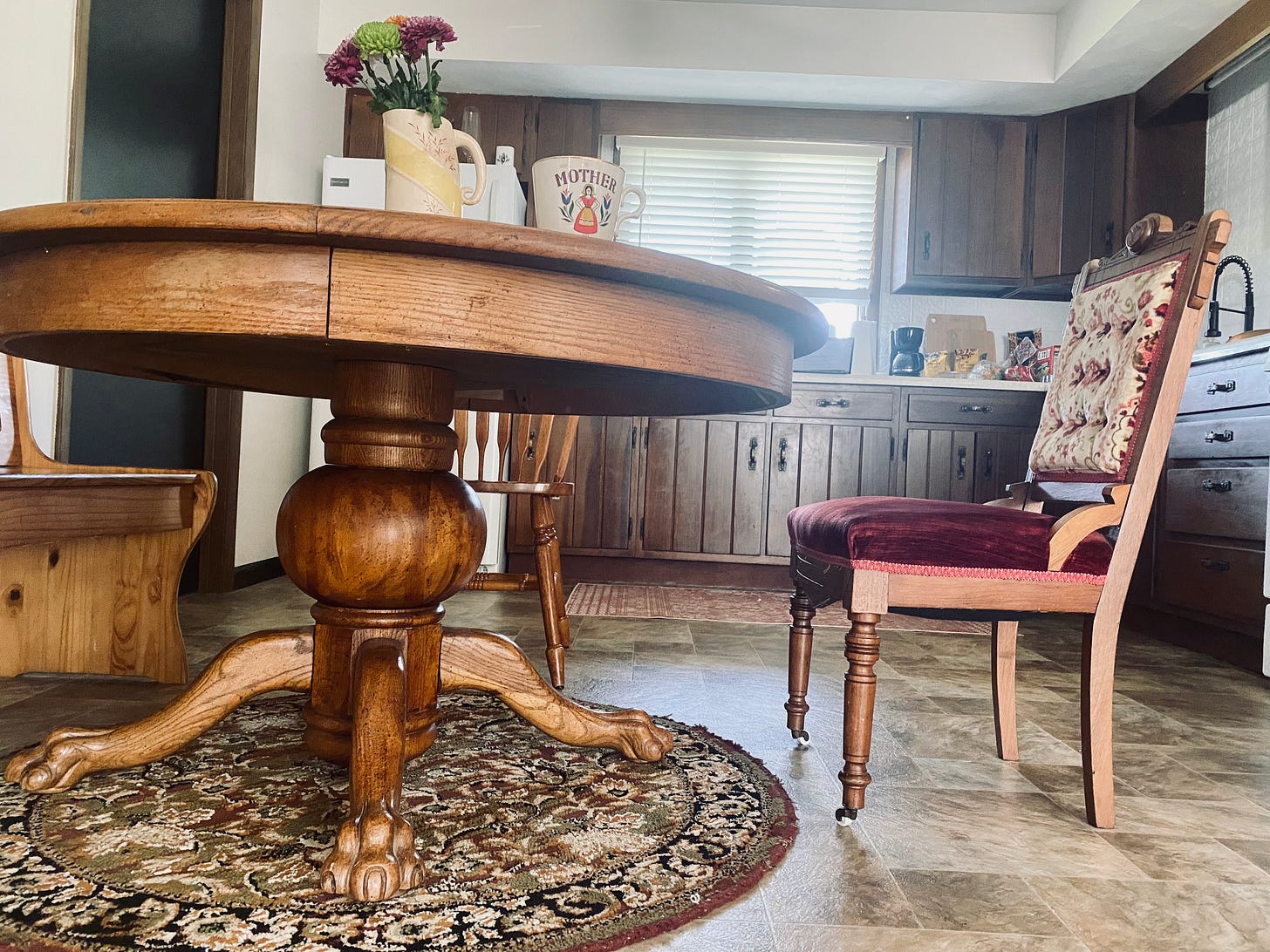



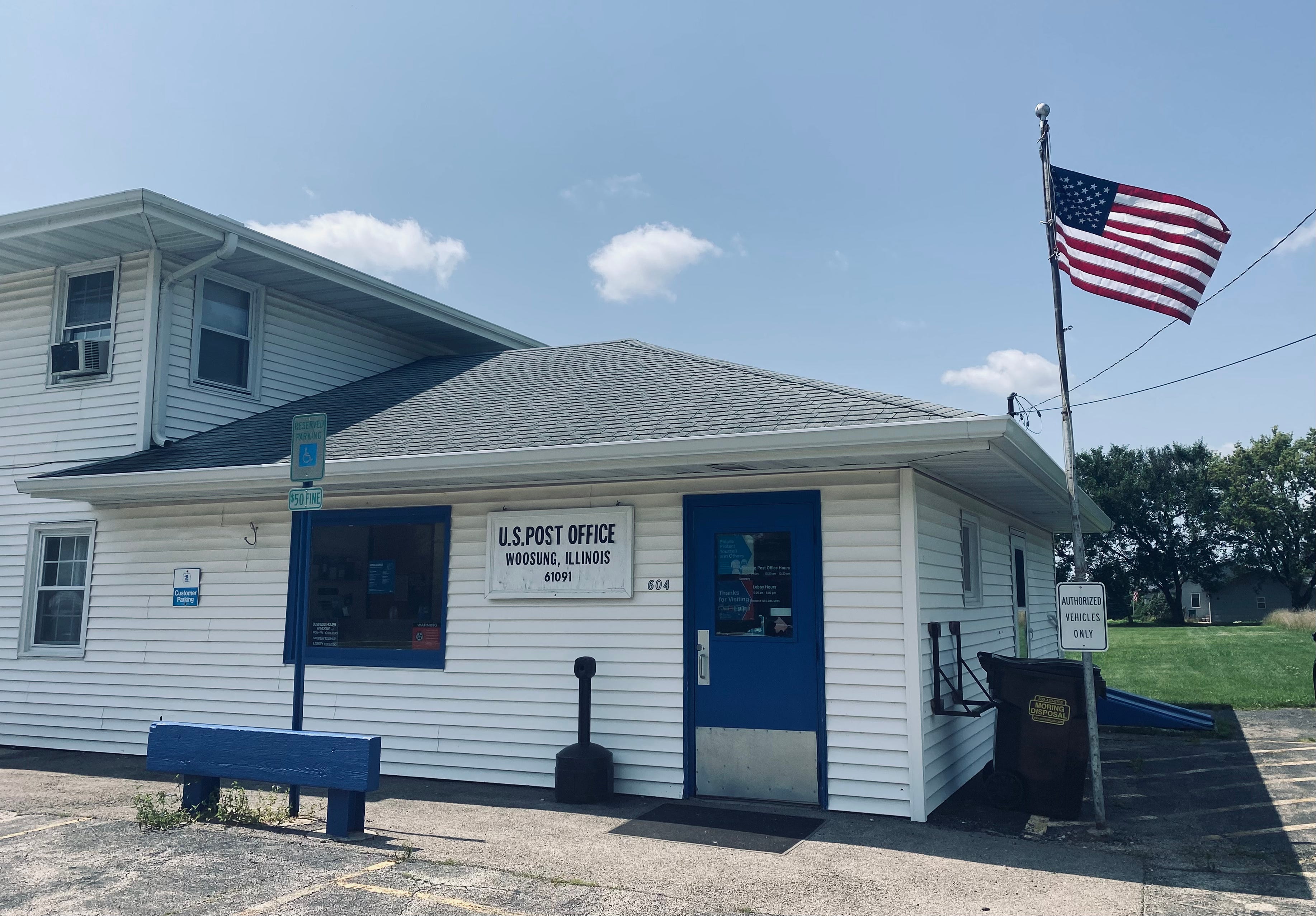


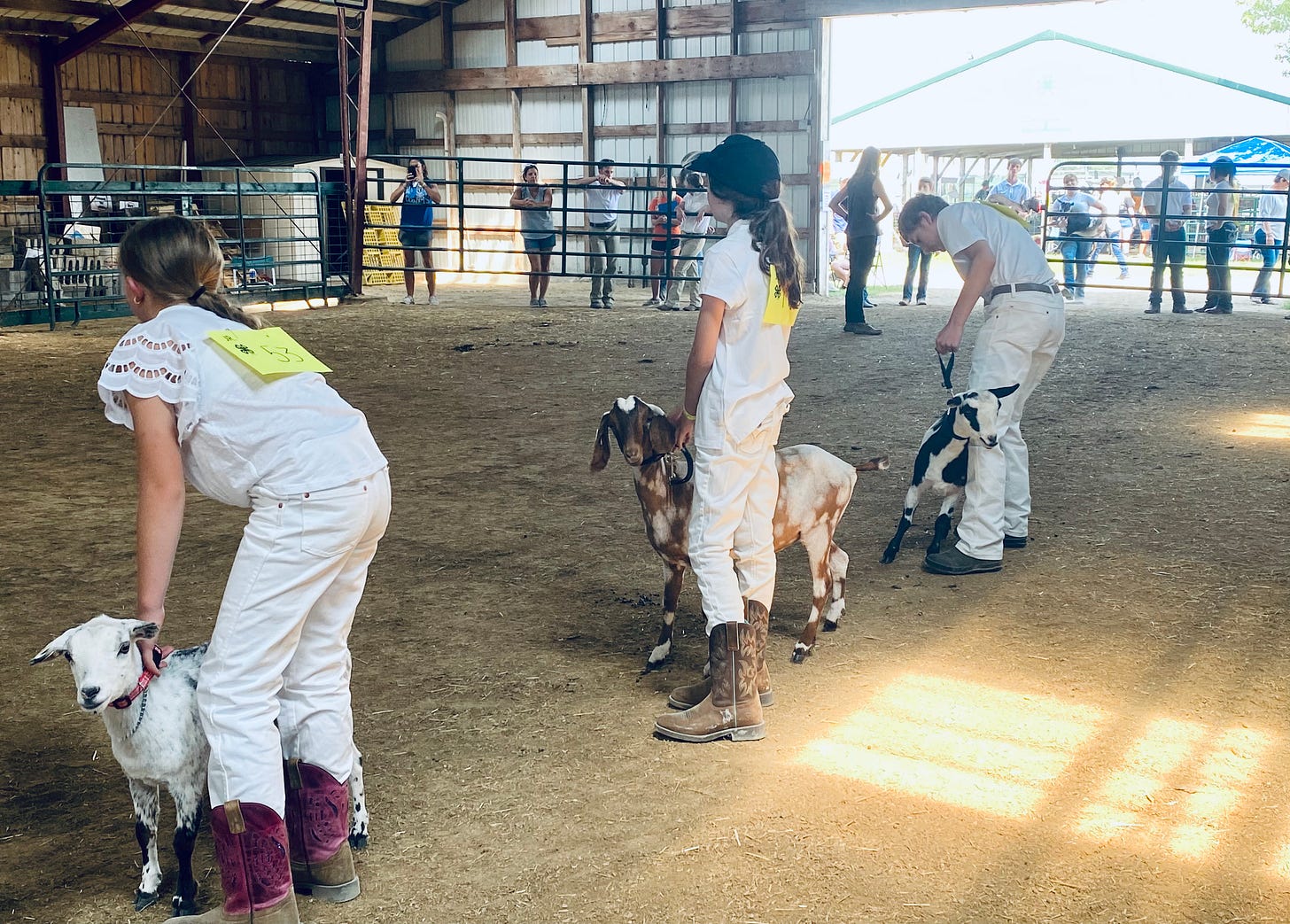
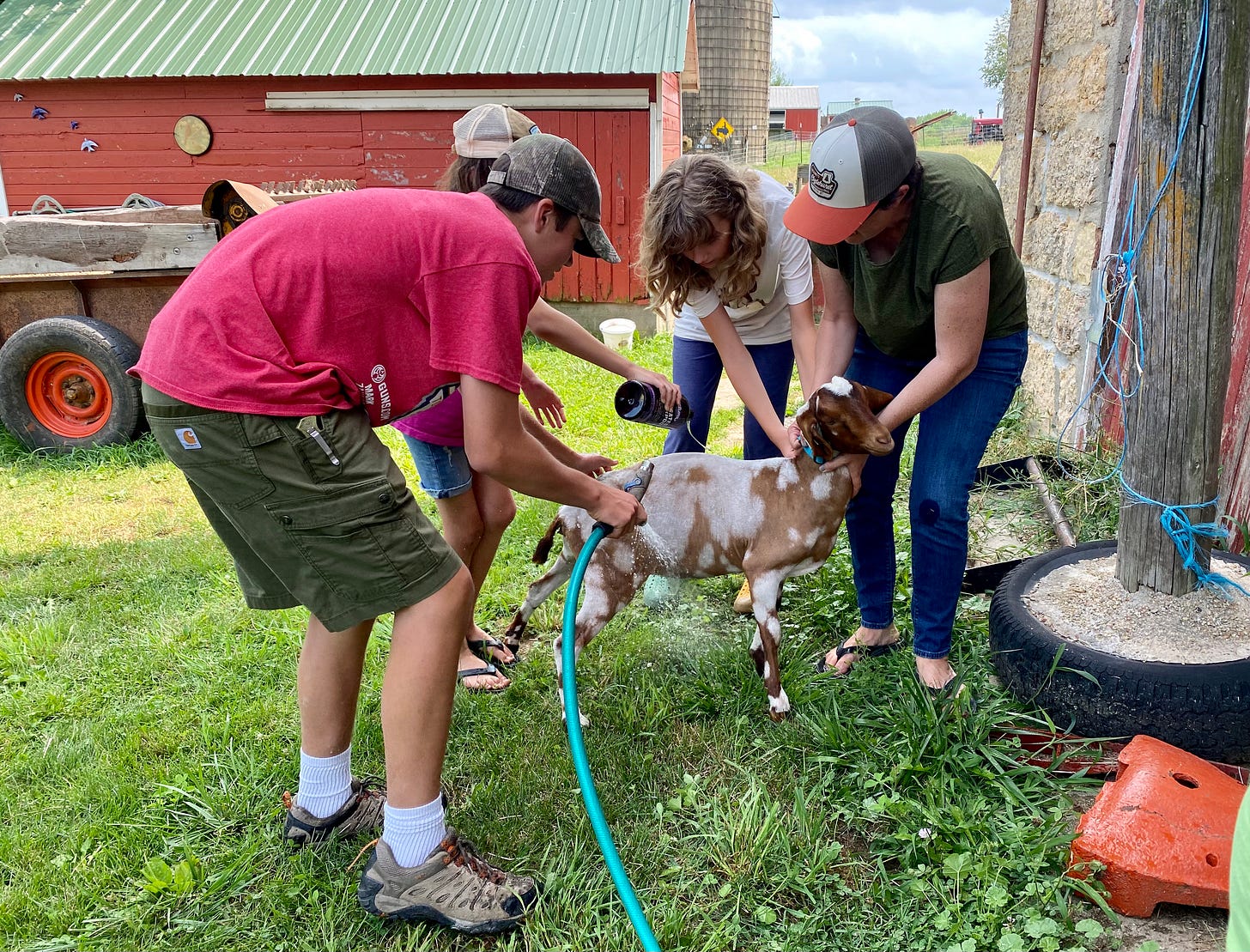
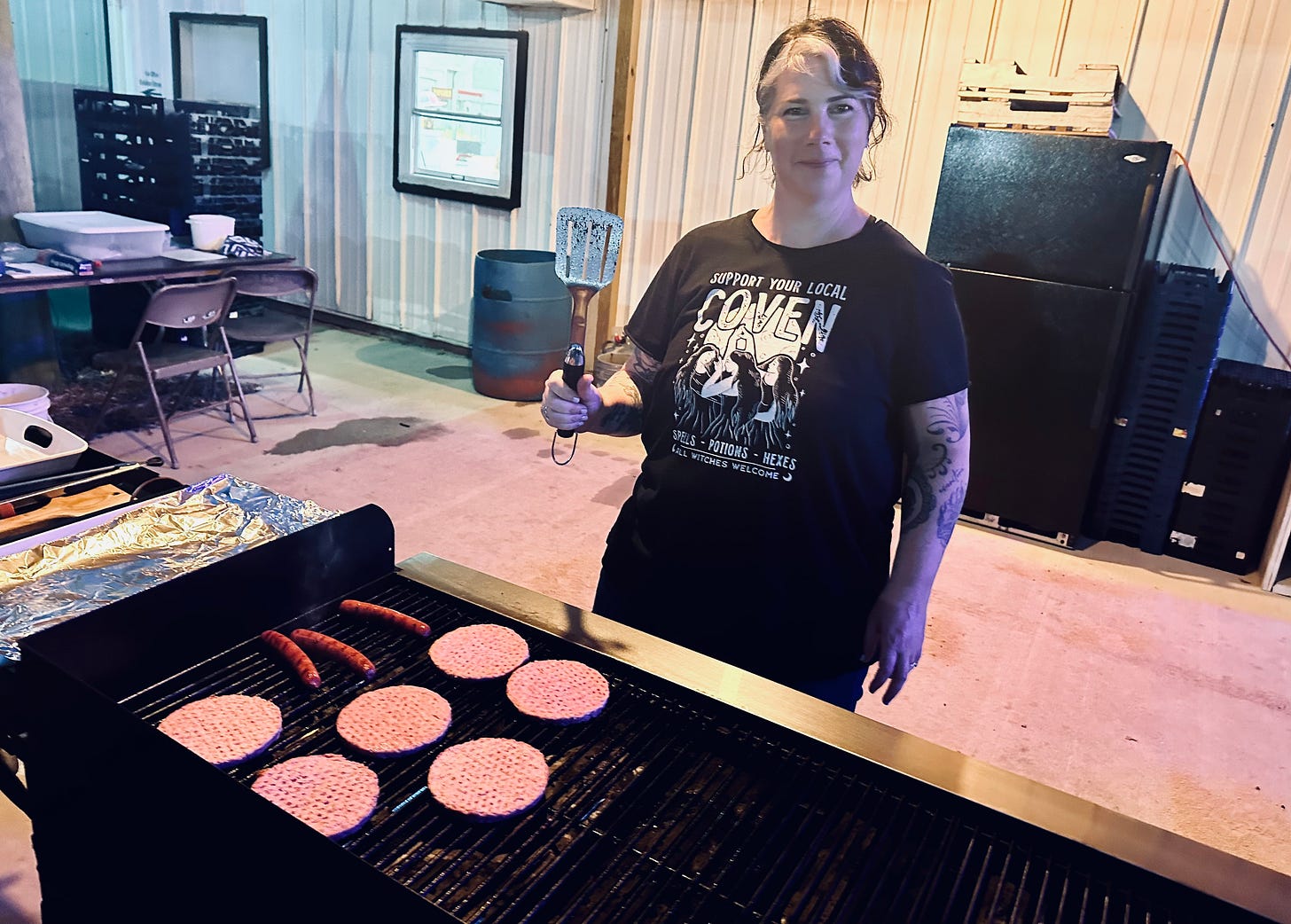
Jesus Christ, you made me cry again LaDonna...
This is a beautiful piece of writing. Are you sending your words out into the world in ways other than this substack? Because this work equals pieces I read in the New Yorker (and the Bitter Southerner, a whole other venue that showcases very fine writing like this, with a regional flavor). In any case, I am glad a friend introduced me to your writing here. I'm a southerner, not a midwesterner, but small-town America is small-town America. 4-H is everywhere, and county fairs with flags big as barns-- not to mention the heartbreak (and heartbroken hilarity) of tending to a loved-one disappearing into dementia (something that transcends all borders). Thank you.